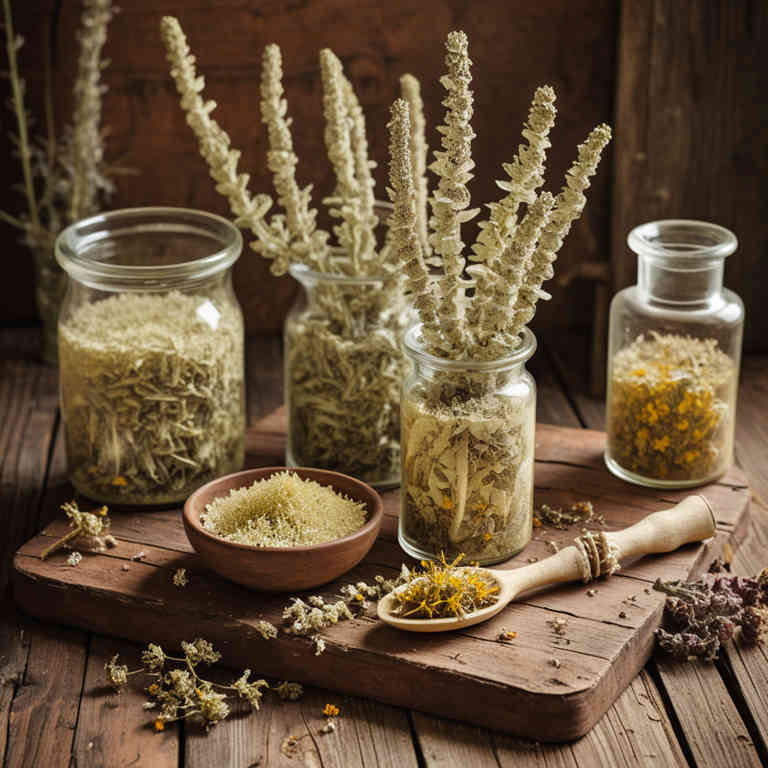Verbascum thapsus decoction for medicinal use

Verbascum thapsus decoction is a herbal preparation made by boiling the leaves and flowers of the common mullein plant.
It is traditionally used in herbalism to soothe respiratory conditions such as coughs, bronchitis, and asthma due to its expectorant and anti-inflammatory properties. The decoction helps to loosen mucus and reduce irritation in the airways, making it easier to breathe. It is often used as a supportive treatment for individuals with chronic respiratory issues.
This preparation is also believed to have mild sedative effects, aiding in relaxation and sleep.
Uses
Verbascum thapsus decoction has been used to treat respiratory and skin conditions for centuries.
Historically, it was valued in ancient Egypt and Greece for its healing properties, particularly for ailments like coughs, asthma, and skin rashes. Traditional herbalists used the decoction to reduce inflammation and promote healing due to its high content of mucilage and flavonoids. In modern times, it is still utilized in herbal medicine for its soothing effects on the throat and lungs, and some studies suggest it may have antioxidant and anti-inflammatory benefits.
Its continued use highlights its enduring role in both traditional and complementary medical practices.
Benefits
Verbascum thapsus decoction has health benefits such as reducing inflammation, supporting respiratory health, and promoting skin healing.
This preparation, made by boiling the leaves and flowers of the common mullein plant, is traditionally used to soothe coughs and ease breathing. It may also help alleviate symptoms of skin conditions like eczema or psoriasis due to its anti-inflammatory properties. The decoction is known for its mild sedative effects, which can aid in relaxation and better sleep.
Additionally, it is believed to support digestive health by soothing the lining of the stomach and intestines.
Constituents
Verbascum thapsus decoction active constituents include mucilage, saponins, flavonoids, and tannins.
These compounds contribute to its traditional use in promoting respiratory health and alleviating inflammation. Mucilage helps soothe irritated tissues, while saponins may support immune function. Flavonoids are known for their antioxidant properties, and tannins provide astringent effects.
This herbal preparation is often used to address conditions such as coughs, bronchitis, and skin irritations.
Preparation
To make Verbascum thapsus decoction, first gather fresh or dried leaves and flowers of the plant, commonly known as mullein.
Wash the plant material thoroughly and then add it to a pot with about 250 ml of water. Bring the mixture to a boil, then reduce the heat and let it simmer for 15 to 20 minutes. Strain the liquid through a fine mesh or cheesecloth to remove the plant matter.
Allow the decoction to cool before use, and store any excess in a sealed container in the refrigerator for up to a week.
Side Effects
Verbascum thapsus decoction may lead to gastrointestinal discomfort, including nausea, vomiting, and diarrhea, due to its high mucilage content.
It can also cause allergic reactions in individuals sensitive to the plant, manifesting as skin rashes or respiratory symptoms. Prolonged use may result in electrolyte imbalances because of its diuretic properties. There is limited research on long-term safety, so chronic use should be approached with caution.
Always consult a healthcare professional before using this preparation, especially for individuals with pre-existing medical conditions.